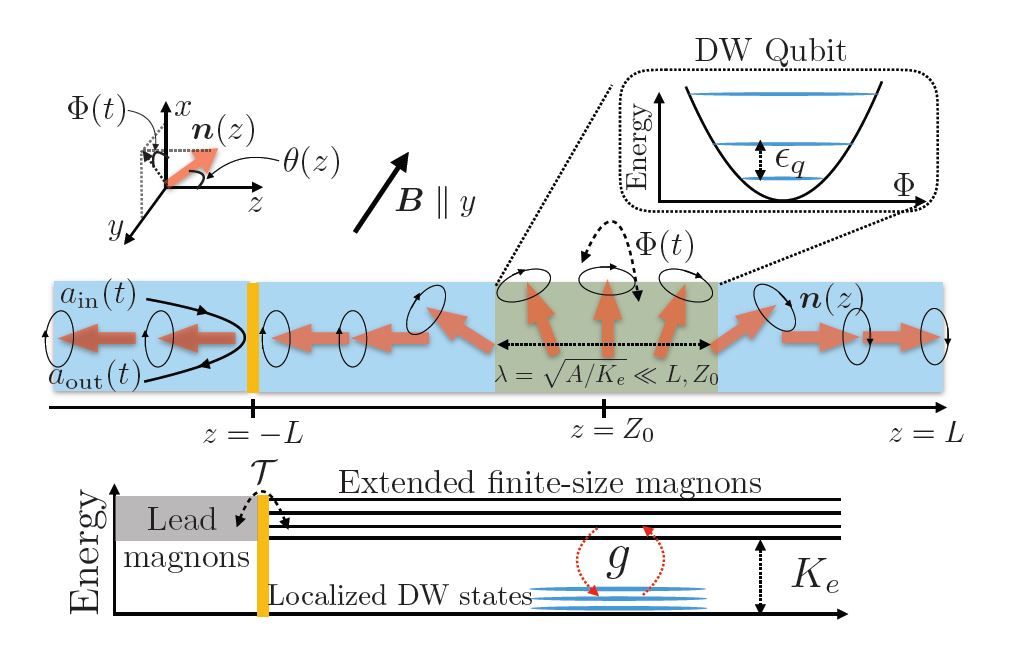Aby zapoznać się z nagraniem referatu, należy skontaktować się z prof. Andrzejem Szewczykiem:
Due to their inherent topological stability, magnetic domain-walls (MDWs) hold great potential for applications in spintronic devices, particularly for data storage and classical information processing purposes. Very recently, numerous theoretical works have delved into the use of MDWs as building blocks for quantum information processing tasks. However, so far no quantum-coherent degrees of freedom have been experimentally uncovered in these systems, mainly because of the extremely low temperatures (~mK) required to resolve the level structure and eventually reach the ground-state. In this talk, I will present a possible resolution to this problem that leverages the inherent magnons found in the insulating ferromagnetic wires that accommodate MDWs. Using the language of cavity optomechanics, I will show how to exploit a geometric Berry-phase interaction between the localized MDWs and the extended magnons in short ferromagnetic insulating wires to efficiently cool the MDW to its quantum ground state or to prepare nonclassical states exhibiting a negative Wigner function that can be extracted from the power spectrum of the emitted magnons. Moreover, we demonstrate that magnons can mediate long-range entangling interactions between qubits stored in distant MDWs, which could facilitate the implementation of a universal set of quantum gates. Instead of integrating additional degrees of freedom with the MDW, such as photons in microwave resonators -- which only adds to the complexity of the setups in the long run -- our approach is promising in terms of scalability, since it leverages only the degrees of freedom of the ferromagnetic wire. Our proposal can be naturally extended to explore the quantum dynamics of MDWs in ferrimagnets and antiferromagnets, as well as quantum vortices or skyrmions confined in insulating magnetic nanodisks.
[1] Mircea Trif and Yaroslav Tserkovnyak, arXiv:2401.03164.

Wykład będzie prowadzony w języku angielskim w sali 203, dostępna będzie również transmisja ZOOM.
Lista terminów (Strona szczegółów wydarzenia)
- 12-06-2024 10:00 - 11:00




